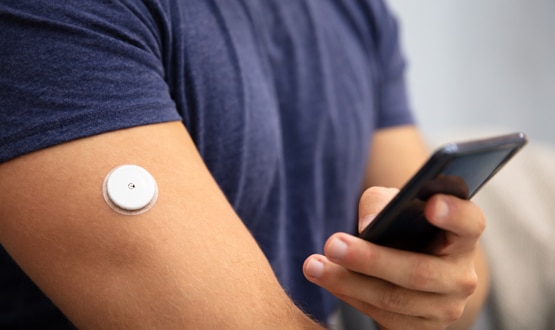Standard weight loss methods better than wearables – study

Fitness devices may not offer an advantage over traditional diet and exercise plans for losing weight, according to a long term study in the US.
The 417 trial participants were split into two groups, and the half with a fitness gadget lost an average 8lb (3.6kg), as opposed to the control group which lost 13lb (5.9 kg).
“Devices that monitor and provide feedback on physical activity may not offer an advantage over standard behavioural weight loss approaches,” the paper concluded.
The University of Pittsburgh research, published on 20 September in the Journal of American Medical Association, studied the weight loss of 417 overweight or obese young adults over two years.
All participants were placed on a low calorie diet, prescribed exercise and had group counselling sessions. The group with the wearable technology monitored their diet and physical activity through the device and online, and the other group self-monitored using a website.
The device used was Fit Core, a product that is manufactured by Jawbone’s BodyMedia and is worn on the upper arm.
The potential of fitness and health apps to improve outcomes has come under scrutiny in several studies, some of which have reveal they can do more harm than good.
Several studies have showed few have clinical input, and one review of melanoma detection apps found three out of four had incorrectly identified at least 30% of melanomas as “unconcerning”.
In January the US Federal Trade Commission forced Lumos Lab, makers of memory game app Luminosity to settle charges for US$2 million over unsubstantiated claims that it treated age related brain diseases, stroke, and PTSD.
JAMA’s results comes after health secretary Jeremy Hunt announcement this month that a new NHS Library would be created for apps and wearables by March next year.
This is not the first time the NHS has attempted to create a Health Apps Library. The pilot of a previous library, hosted on NHS Choices, was closed down in October 2015 after research showed some could leak health data to third parties.
Earlier this year, a study found that “the majority of mobile health apps failed security tests and could easily be hacked”.
But despite concerns about their effectiveness, the health care app market is still booming. One analysis by company CCS Insight, expected 1.7 million fitness trackers to be sold this year in the UK, with sales expected to continue to grow.



